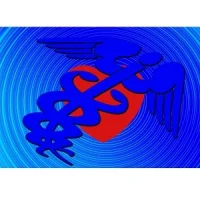According
to a study carried out by researchers at Columbia University, New York,
adherence to prescribed medical therapy after coronary artery bypass graft
(CABG) or percutaneous coronary intervention (PCI) is associated with a significantly better long-term
patient outcome.

This included 3,228 participants from eight hospitals who underwent heart surgery in 2004. Of these, 973 patients had CABG and 2,255 had PCI. The researchers followed the patients for 5 to 7 years after surgery to determine medical history and recorded major adverse coronary events, including non-fatal myocardial infarction, consequent revascularisation procedures and death.
The findings demonstrated that there was a significant benefit for antiplatelet, lipid-lowering and β-blocker therapyin in both the CABG and the PCI group. Moreover, compliance with optimal medical therapy was found to be a more powerful predictor of major adverse cardiac event-free survival than choice of therapy. In patients non-adherent to optimal medical therapy, CABG outcomes were superior to PCI outcomes, while they were not different in patients adherent to optimal medical therapy. More specifically, those who had continued with their recommended medical therapy were 2.8 times more likely to have survived without any major complications compared to those who did not continue taking their medications. Furthermore, PCI patients were nearly 1.5 times more likely than CABG patients to have a major coronary event.
 “While larger,
prospective studies are needed to replicate our results, this study underscores
the importance of educating PCI and bypass patients about the need to stick to
their prescribed regimens, even if they feel just fine," said Dr
Kurlansky (pictured), lead author of the paper. "It also suggests that physicians may
need to recommend surgery instead of PCI for patients who are unlikely to
adhere to their prescribed medical therapy."
“While larger,
prospective studies are needed to replicate our results, this study underscores
the importance of educating PCI and bypass patients about the need to stick to
their prescribed regimens, even if they feel just fine," said Dr
Kurlansky (pictured), lead author of the paper. "It also suggests that physicians may
need to recommend surgery instead of PCI for patients who are unlikely to
adhere to their prescribed medical therapy."
Source and image credit: American Heart Assocation










